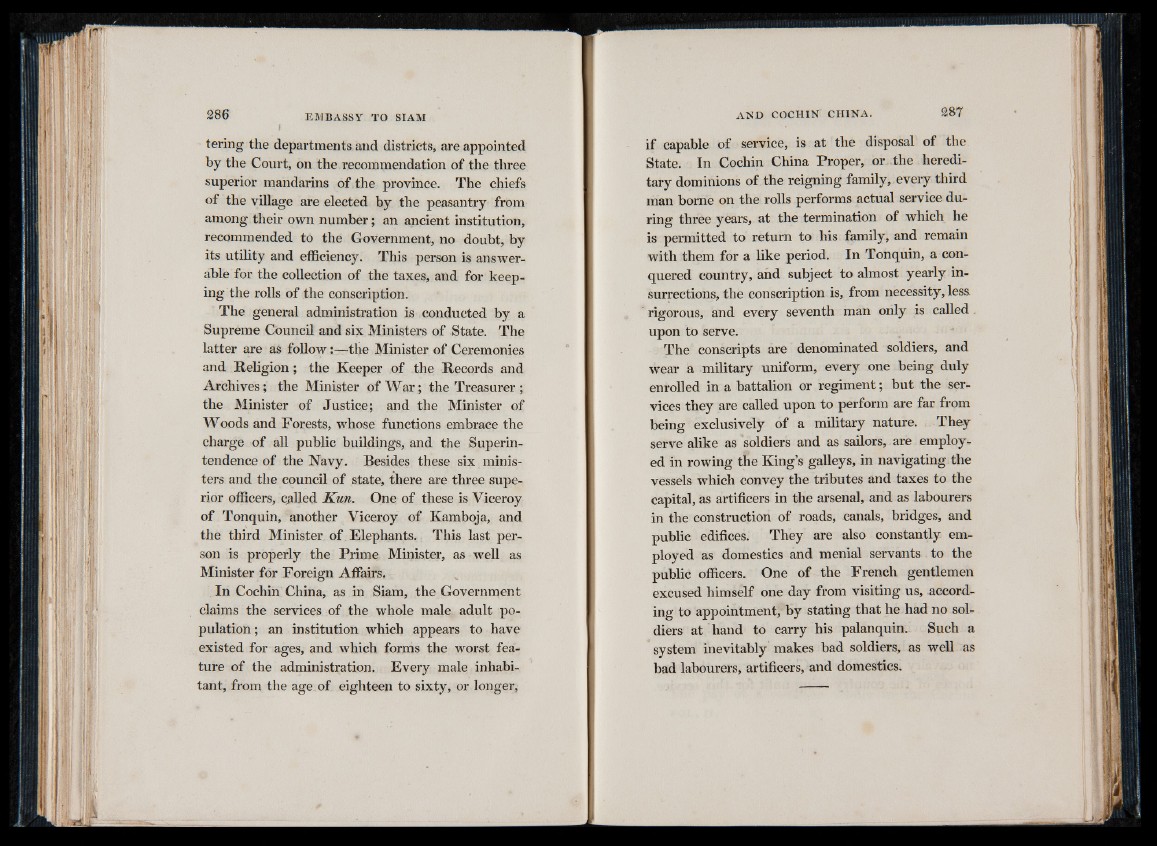
tering the departments and districts, are appointed
by the Court, on the recommendation of the three
superior mandarins of the province. The chiefs
of the village are elected by the peasantry from
among their own number; an ancient institution,
recommended to the Government, no doubt, by
its utility and efficiency. This person is answer-
able for the collection of the taxes, and for keeping
the rolls of the conscription.
The general administration is conducted by a
Supreme Council and six Ministers of State. The
latter are as f o l l o w t h e Minister of Ceremonies
and Religion; the Keeper of the Records and
Archives; the Minister of W a r; the Treasurer ;
the Minister of Justice; and the Minister of
Woods and Forests, whose functions embrace the
charge of all public buildings, and the Superintendence
of the Navy. Besides these six ministers
and the council of state, there are three superior
officers, called Kun. One of these is Viceroy
of Tonquin, another Viceroy of Kamboja, and
the third Minister of Elephants. This last person
is properly the Prime Minister, as well as
Minister for Foreign Affairs.
In Cochin China, as in Siam, the Government
claims the services of the whole male adult population
; an institution which appears to have
existed for ages, and which forms the worst feature
of the administration. Every male inhabitant,
from the age of eighteen to sixty, or longer,
if capable of service, is at the disposal of the
State. In Cochin China Proper, or the hereditary
dominions of the reigning family, every third
man borne on the rolls performs actual service during
three years, at the termination of which he
is permitted to return to his family, and remain
with them for a like period. In Tonquin, a conquered
country, and subject to almost yearly insurrections,
the conscription is, from necessity, less,
rigorous, and every seventh man only is called
upon to serve.
The conscripts are denominated soldiers, and
wear a military uniform, every one being duly
enrolled in a battalion or regiment; but the services
they are called upon to perform are far from
being exclusively of a military nature. They
serve alike as soldiers and as sailors, are employed
in rowing the King’s galleys, in navigating the
vessels which convey the tributes and taxes to the
capital, as artificers in the arsenal, and as labourers
in the construction of roads, canals, bridges, and
public edifices. They are also constantly employed
as domestics and menial servants to the
public officers. One of the French gentlemen
excused himself one day from visiting us, according
to appointment, by stating that he had no soldiers
at hand to carry his palanquin. Such a
system inevitably makes bad soldiers, as well as
bad labourers, artificers, and domestics.